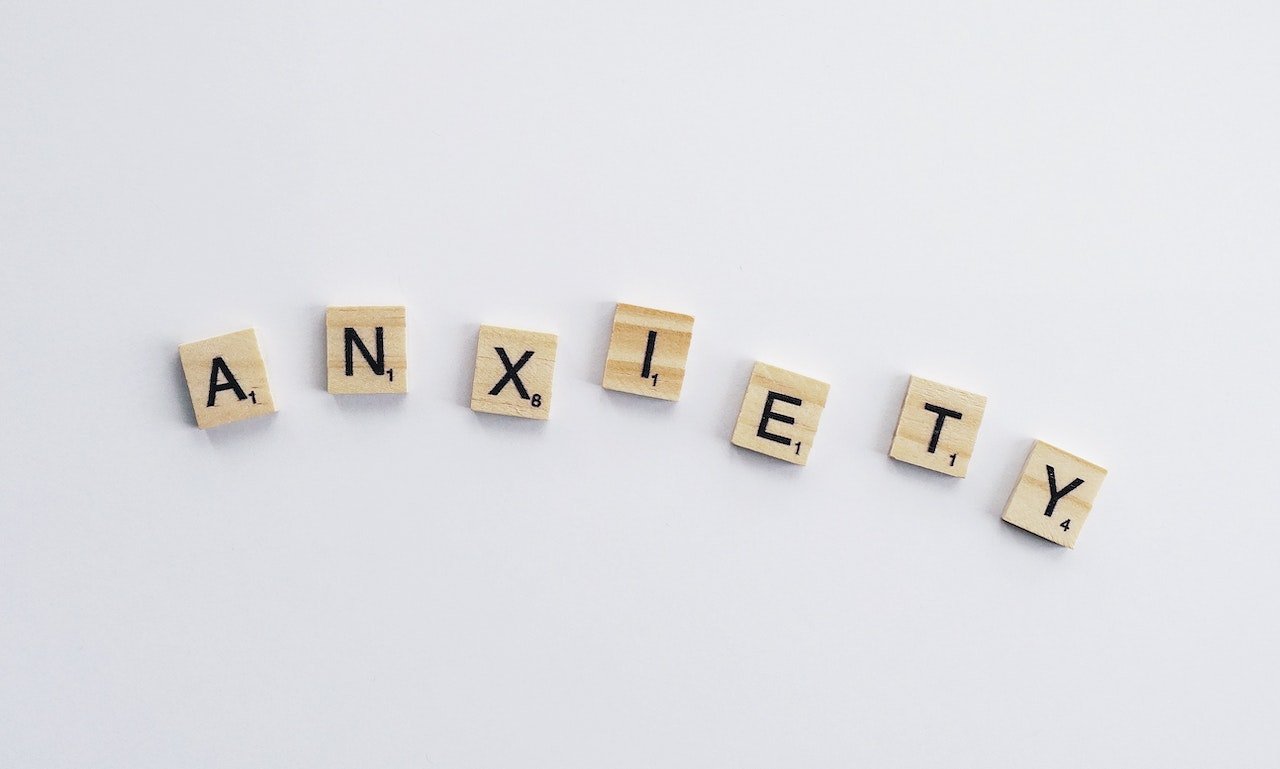Jason Thompson sheds light on anxiety and imposter syndrome.
Post by: Jason Thompson, Photo by: Inzmam Khan
For most of my life, I've been a very anxious person. My earliest memories of the fear that anxiety produces are from when I was around 8 years old. I had no idea what these feelings were, they felt alien, in my mind, I was the only person in the world that felt like this. The fear got so severe I had thoughts of being committed to some research institution, hooked up to all sorts of machines, so that people could study why I was having these alien feelings.
It wasn't until after i had graduated college, had moved on to my second professional job, where I finally started to open up about these scary feelings I had. Can you imagine living almost 20 years, with this secret that you were struggling with something that you felt no other human on the planet has ever struggled with?
You are not alone.
It was incredibly comforting to talk, albeit with only a very few trusted friends, about what I was feeling. And even more incredible was that I found a friend that knew exactly what I was feeling, he could complete my stories for me, because he had been living the same life. As sad as I felt knowing someone else was suffering like me, it brought incredible comfort knowing someone else could understand me.
While having gained a bit of comfort was nice, I was still stuck in this place of fear. It got to the point that it was so bad I stopped driving on highways. It got even worse and I locked myself in my bedroom, becoming truly a housebound agoraphobic. It was at that time that I finally admitted that I needed real help.
Help came in the form of a formal diagnosis: Generalized Anxiety Disorder with Panic Attacks.
Generalized Anxiety Disorder (GAD) is characterized by persistent and excessive worry about a number of different things. People with GAD may anticipate disaster and may be overly concerned about money, health, family, work, or other issues. Individuals with GAD find it difficult to control their worry. They may worry more than seems warranted about actual events or may expect the worst even when there is no apparent reason for concern.
A panic attack causes sudden, brief feelings of fear and strong physical reactions in response to ordinary, nonthreatening situations. When you’re having a panic attack, you may sweat a lot, have difficulty breathing and feel like your heart is racing. It may feel as if you’re having a heart attack.
Now that I had an understanding of what was happening, I could take proactive steps to address it. I took up a mindfulness practice, yoga, daily breathing exercises, journaling, exposure therapy (deliberately putting myself into the very situations that caused the most fear). With daily practice, the fear never went away, to this day it's still there right below the surface, but now I had tools and had put my mind and body in a place where I could manage it.
And manage it I did. I continued to progress in my career, growing from a key individual contributor into leadership roles. I was recruited by, and eventually joined, an analytics agency to design and build out a new line of business for them. Which I did, doubling the company's revenue in less than 18 months. Then I decided I had gained enough experience that I could build for my own company, so I ventured out with my partner, Hila Dahan, and started 33 Sticks.
The plot thickens. Then came a massive right cross that anxiety delivered squarely to my jaw -- IMPOSTER SYNDROME.
Impostor syndrome, also known as impostor phenomenon or impostorism, is a psychological occurrence in which an individual doubts their skills, talents, or accomplishments and has a persistent internalized fear of being exposed as a fraud.

You see, I was so good at hiding my anxiety from the world, I could be in the middle of a full blown panic attack while out to dinner with friends but if you were to ask any of them to describe me at dinner, they'd say something like, "he was so chill, the picture of Zen."
That ability to be Zen in the middle of pure panic triggered an overwhelming sense of Imposter Syndrome. If I was so good at fooling those around me regarding how I felt inside, how else was I fooling people?
* Did I somehow fool the university into giving me a degree I didn't deserve?
* Did I really manage to trick my employers into giving me recognition for the incredible value I was creating for them?
* Did I trick these massive global brands into buying analytics services from someone that had no real data skills?
In my mind, the answer to all those questions, and many more, was YES. I was fooling everyone. I was an impostor and one day, the world would find out I was a big fake all along. Talk about adding even more anxiety to a person that was already dealing with so much anxiety that they were constantly teetering at their breaking point.
The good thing, I guess if you could call it that, is that Impostor Syndrome tends to mimic a lot of the cognitive distortions that are present with Generalized Anxiety. So, if I could challenge the way my brain was distorting how I viewed the world in general, the same techniques should also work in challenging how my brain was distorting how I viewed my accomplishments in life.
I have no great vision that the daily fear produced by Generalized Anxiety Disorder will ever go away. I have no great vision that that the fear of being exposed as a fraud will ever go away. At one point I had hoped that, I hoped that with enough work, I would be "cured" of the fear but now I realize it will always be a companion but with the right tools, with the right practice, and with the right support system around me, i don't need to let the fear ruin my life.
With the fear as a companion, I earned a Master's Degree in Information Systems Management, I was a highly valued employee for more than a decade, I started and run my own company, 33 Sticks, that advises some of the most recognizable brands in the world, i find joy in playing the piano, uke, bass, and electric guitar, and i'm an accomplished amateur chef.
My hope in sharing my story is to help people feel more comfortable within their own skin, to understand that we all have struggles, that we are all beautifully unique, with all our faults, our idiosyncrasies, our weird coping rituals, all those things that we think make us weird, different, broken, actually make us human. And it should be more than ok to be human, even in the workplace.
If I can do this, you can do this too. If you have struggled with anxiety, if you have struggled with impostor syndrome, and have kept that struggle locked up tightly in your head, let down your guard a bit, talk to your friends, your family, reach out to me, I guarantee that you are not alone.

Wouter de Jong
Jason Thompson is the CEO of 33 Sticks, a boutique analytics agency that advises some of the largest and most recognizable brands in the world on how to use data to create immensely positive customer experiences. As an analytics and optimization expert, he brings over 20 years of experience, going back to being part of the original technical implementation team at Omniture.
Jason has a passion for teaching, volunteering his time as a mentor at the University of Utah’s David Eccles School of Business and as an Executive Board Member at East Tennessee State University’s Department of Media and Communications and Industry Fellow at ETSU’s Research Corporation.
You can follow Jason on Twitter or catch up with him on his blog Hippie CEO to stay connected to his mission.


